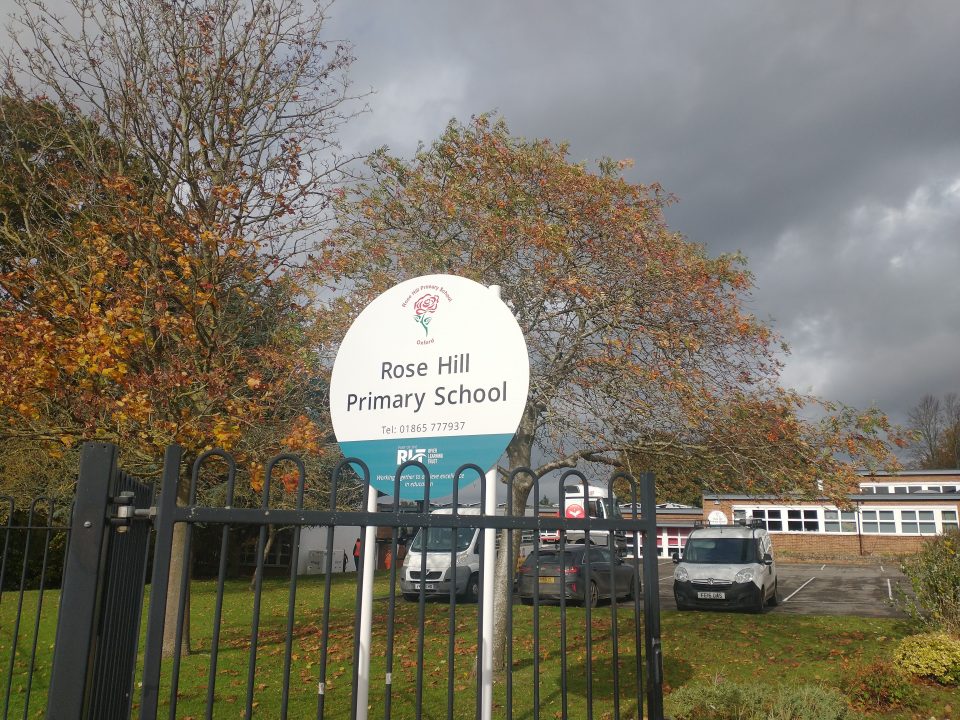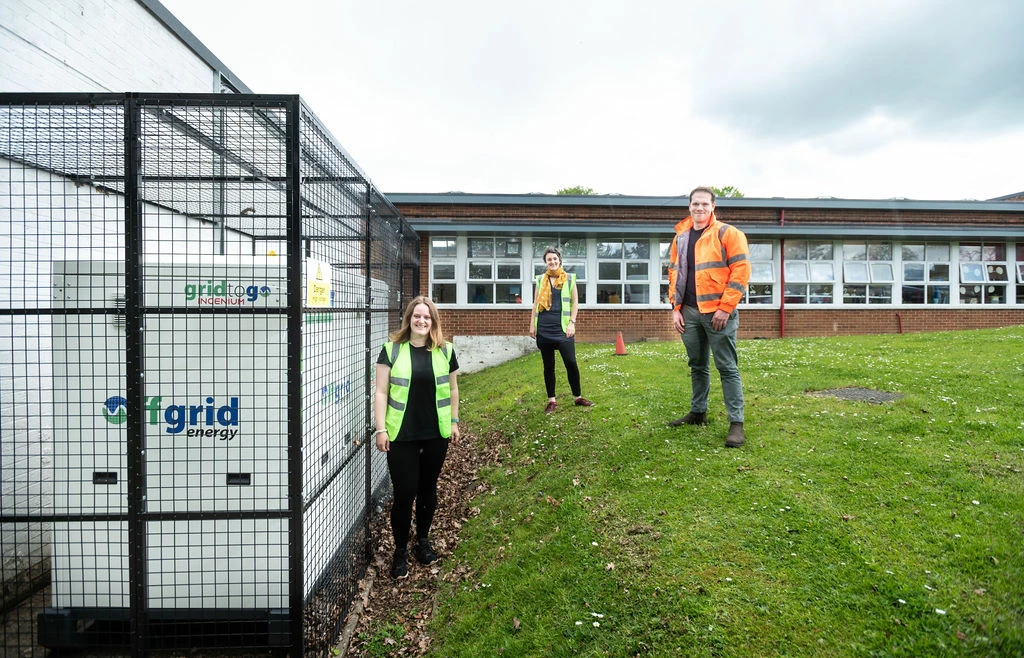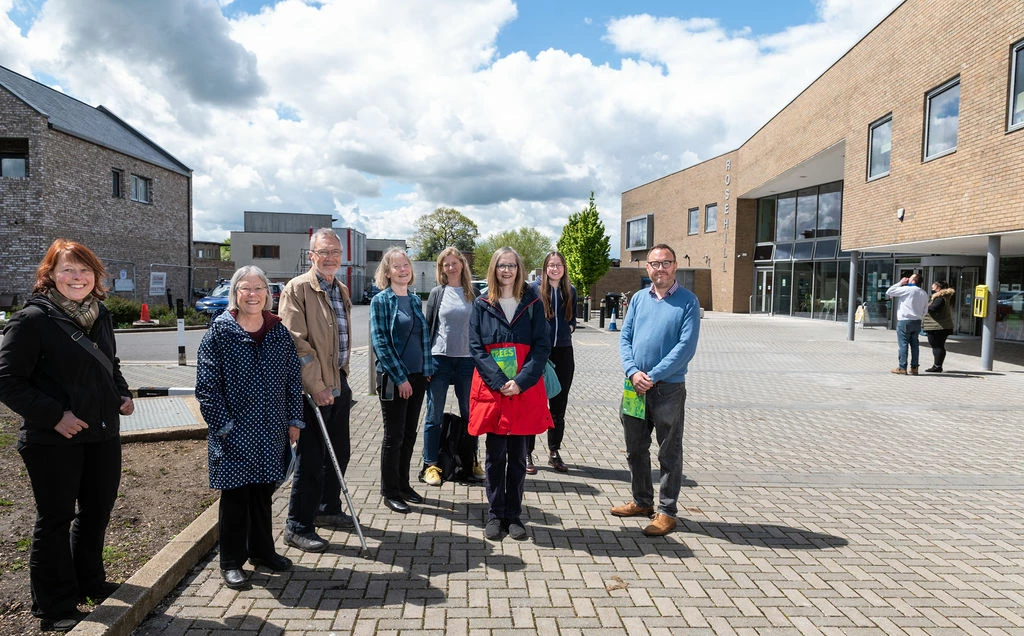Rose Hill battery trials
How can a battery increase flexibility for a community? This trial aims to understand how a small battery can provide flexibility to the energy network.
Background
Rose Hill is a residential area on the Southern outskirts of Oxford. The road is part of a historic route from Oxford to London via Henley, running parallel to the river Isis (the name of the Thames in Oxford). The centre of Rose Hill estate is the Oval, a large expanse of grass in the centre of a turning circle on which sits Rose Hill Primary School and just of it is Rose Hill Community Centre.
Rose Hill is one of the most diverse communities in Oxford and represents a wide range of ages, occupations, ethnicities, religions, and incomes.


Aim of the trial
We are running MVS trials for the battery installed at Rose Hill Primary School, testing how a small battery can provide flexibility to the network. The trials in Rose Hill will explore and unlock the potential of the battery to play a part in delivering flexible energy. This means being able to increase or decrease energy generation or turning up and down energy demand.
A Minimum Viable System is the minimum set of participants, technologies and practices required to test a new process, service, or asset. Referred to as MVS trials, our experiments help us to explore how effectively flexibility services can be delivered and highlight the benefits these provide to the network and the trial participants and wider community.
The MVS process allows us to test the flexibility services in a step-by-step fashion, helping us to thoroughly understand what does and doesn’t work well. We can then review the process, ironing out the bugs before rolling out flexibility service participation to a wider audience.
What we hope to do & learn
We are using our newly developed asset control system, People’s Power Station 2.0, to automatically send instructions to the Rose Hill battery to deliver flexibility of 15 kW, as requested by SSEN through an auction on Piclo’s Picloflex system – this is essentially eBay for flexibility services.
We were able to measure the effect of the battery discharge on the school’s energy use from the grid, as well demonstrating the effect on the local distribution network.
Key battery facts
- 1900kg in weight (that’s almost two tonnes!)
- Stores up to 50 kWh of energy, enough to discharge the battery for over three hours at maximum power
- Built by Offgrid Energy
- Lifespan of 10-15 years
Who is involved?
These trials are managed by the Low Carbon Hub.
They are supported by Rose Hill and Iffley Low Carbon (RHILC) are a vibrant Community Action Group aiming to make their neighbourhood cleaner and greener by promoting renewable energy, energy conservation, waste reduction and tree planting. The group are very active in all these areas and aims to make Rose Hill the first zero carbon estate in the country.

